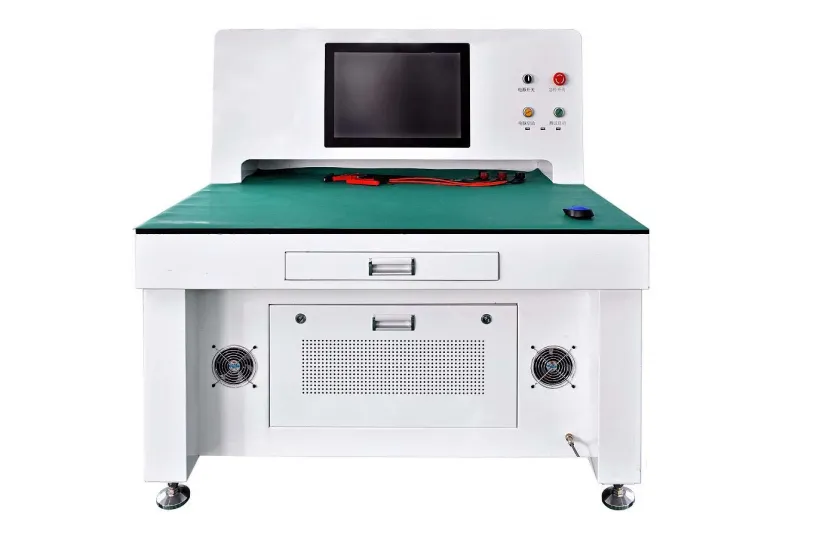In the ever - evolving landscape of lithium - battery technology, ensuring the quality and reliability of lithium - battery products is of paramount importance. This is where the Battery Pack Finished Comprehensive Testing Equipment steps in as a crucial tool.
The Battery Pack Finished Comprehensive Testing Equipment is a sophisticated and integrated system designed specifically to evaluate the performance, safety, and overall quality of lithium - battery products at the end of the production line. It serves as the final checkpoint, ensuring that only high - quality battery packs are released into the market.
Electrical Parameter Testing Unit: This is the core component of the equipment. It is responsible for accurately measuring a wide range of electrical parameters of the lithium - battery pack. Voltage, current, resistance, and capacitance are among the fundamental parameters it assesses. By precisely measuring the voltage, the equipment can determine whether the battery pack is charged to the appropriate level and if there are any voltage imbalances among the cells within the pack. Measuring the internal resistance is crucial as it can indicate the health of the battery cells. A high internal resistance may suggest degradation or potential issues with the battery's chemistry.
Capacity and Energy Testing Module: This module focuses on evaluating the capacity and energy - storage capabilities of the battery pack. It conducts controlled charge and discharge cycles to accurately measure the amount of charge the battery pack can hold and the amount of energy it can deliver. This information is vital for determining the battery pack's performance in real - world applications. For example, in an electric vehicle, a battery pack with a higher capacity can provide a longer driving range.
Safety Testing Sub - system: Safety is a top priority when it comes to lithium - battery products. The safety testing sub - system of the comprehensive testing equipment is equipped with various sensors and mechanisms to detect potential safety hazards. It checks for over - voltage, over - current, short - circuits, and thermal runaway risks. Over - voltage protection is essential to prevent the battery cells from being damaged due to excessive charging, while over - current protection safeguards against situations where the battery pack may draw too much current, which could lead to overheating and potential fire hazards. Thermal sensors are used to monitor the temperature of the battery pack during operation, and if the temperature exceeds a safe limit, the equipment can trigger appropriate actions, such as shutting down the charging or discharging process.
Battery Management System (BMS) Compatibility Testing: Many modern lithium - battery packs are equipped with a Battery Management System. The testing equipment verifies the proper functioning of the BMS and its compatibility with the battery pack. It checks if the BMS can accurately monitor the state of charge (SOC), state of health (SOH), and other important parameters of the battery cells. The equipment also ensures that the BMS can effectively balance the charge among the cells in the battery pack, which is crucial for maximizing the battery pack's lifespan and performance.
When a lithium - battery pack is placed into the comprehensive testing equipment, it goes through a series of automated tests. First, the electrical parameter testing unit measures the basic electrical characteristics of the battery pack. Then, the capacity and energy testing module initiates the charge and discharge cycles, carefully recording the data throughout the process. Simultaneously, the safety testing sub - system is constantly monitoring for any potential safety issues. If the battery pack is equipped with a BMS, the BMS compatibility testing is also carried out. Once all the tests are completed, the equipment generates a detailed report summarizing the test results, indicating whether the battery pack meets the required quality and safety standards.

The Battery Pack Finished Comprehensive Testing Equipment is widely used in various industries. In the electric vehicle (EV) industry, it is essential for ensuring the performance and safety of EV battery packs. These battery packs need to meet strict standards to provide a reliable and safe driving experience. In the energy storage system (ESS) sector, the equipment helps to guarantee that the battery packs used for storing and supplying electrical energy are of high quality. Additionally, in the production of portable electronics such as laptops, smartphones, and power banks, the comprehensive testing equipment ensures that the battery packs are reliable and safe for daily use.
In conclusion, the Battery Pack Finished Comprehensive Testing Equipment is an indispensable tool in the lithium - battery product manufacturing process. It plays a vital role in maintaining high - quality standards, ensuring the safety of end - users, and promoting the development of the lithium - battery industry.



